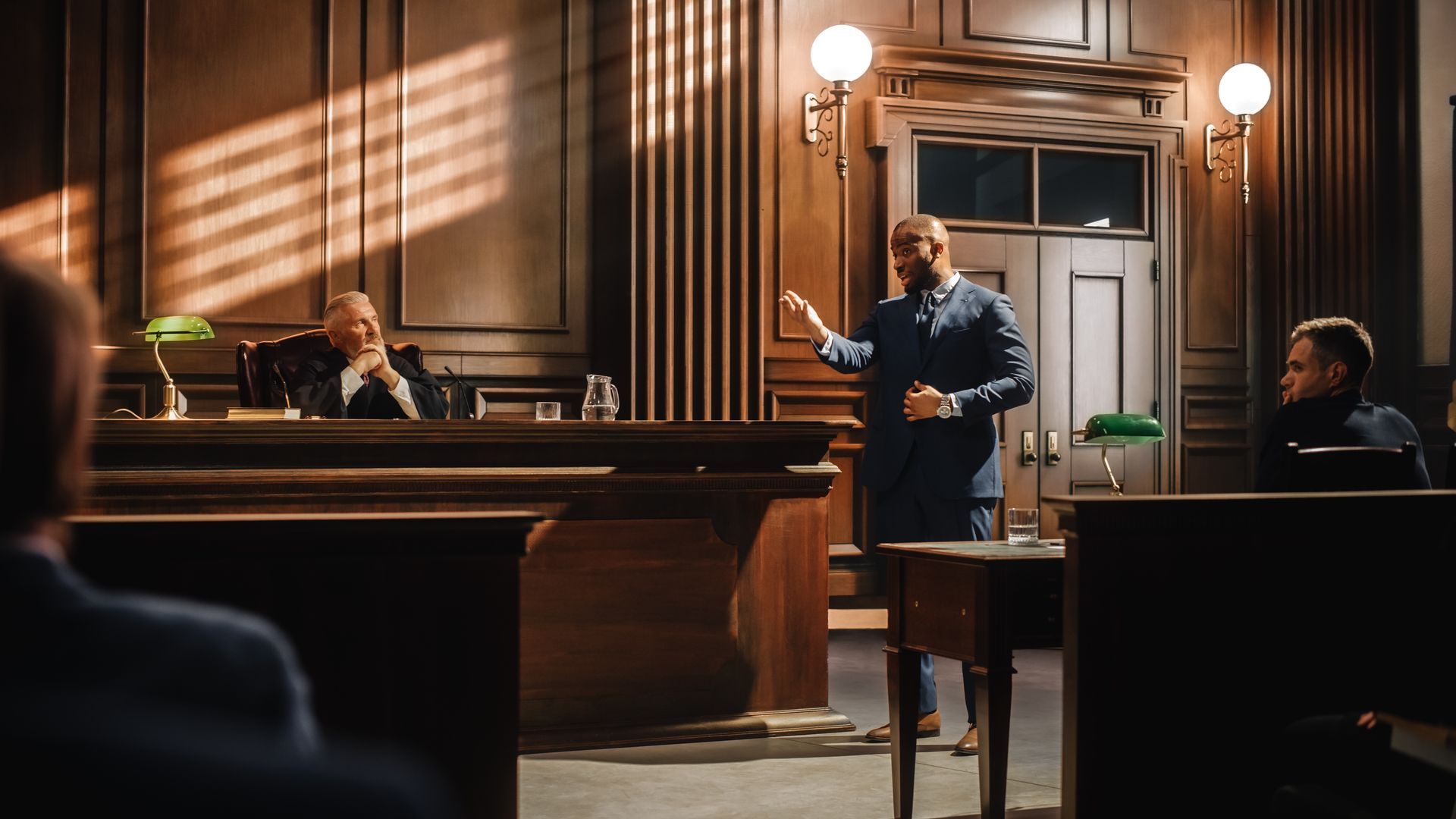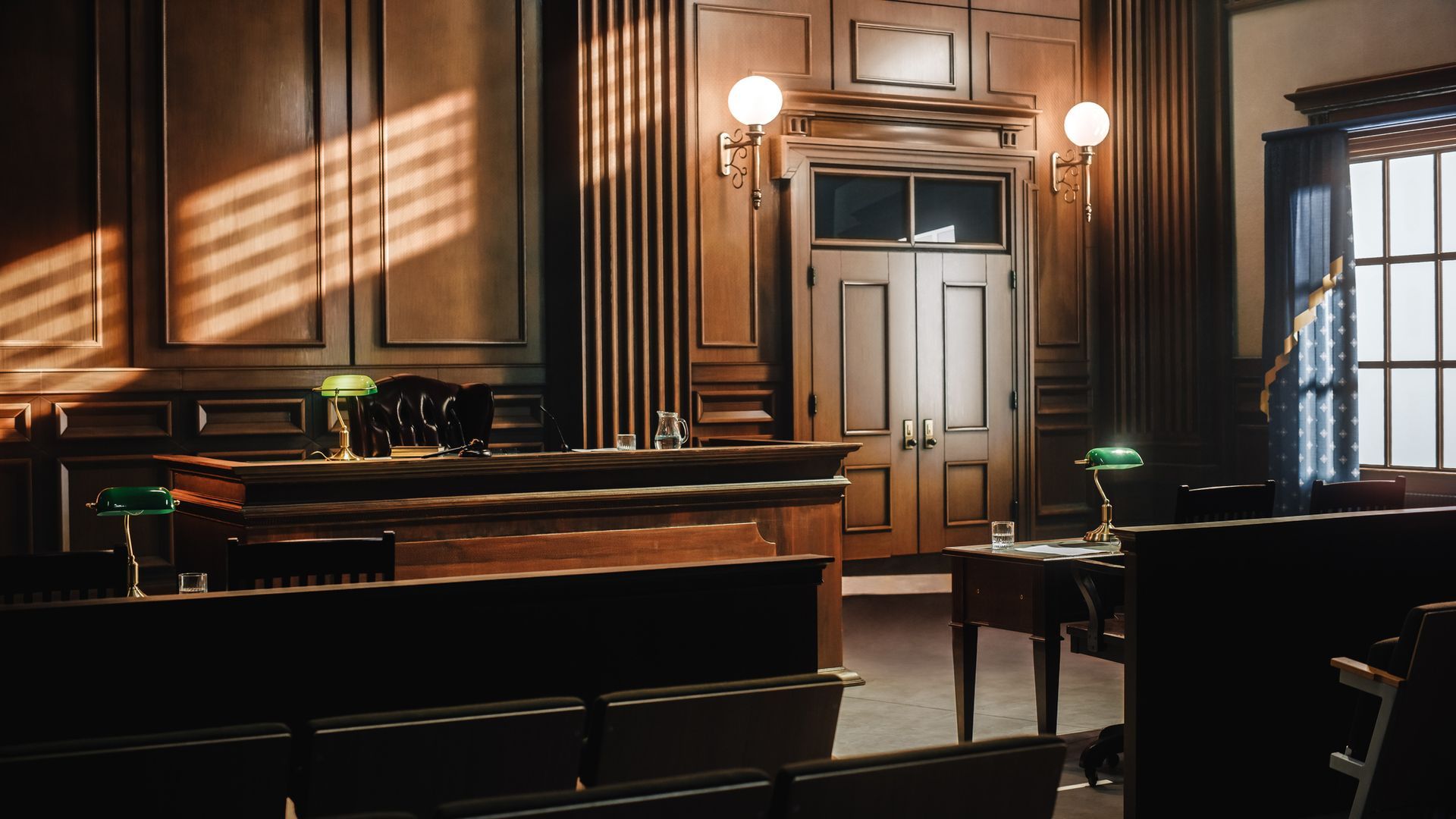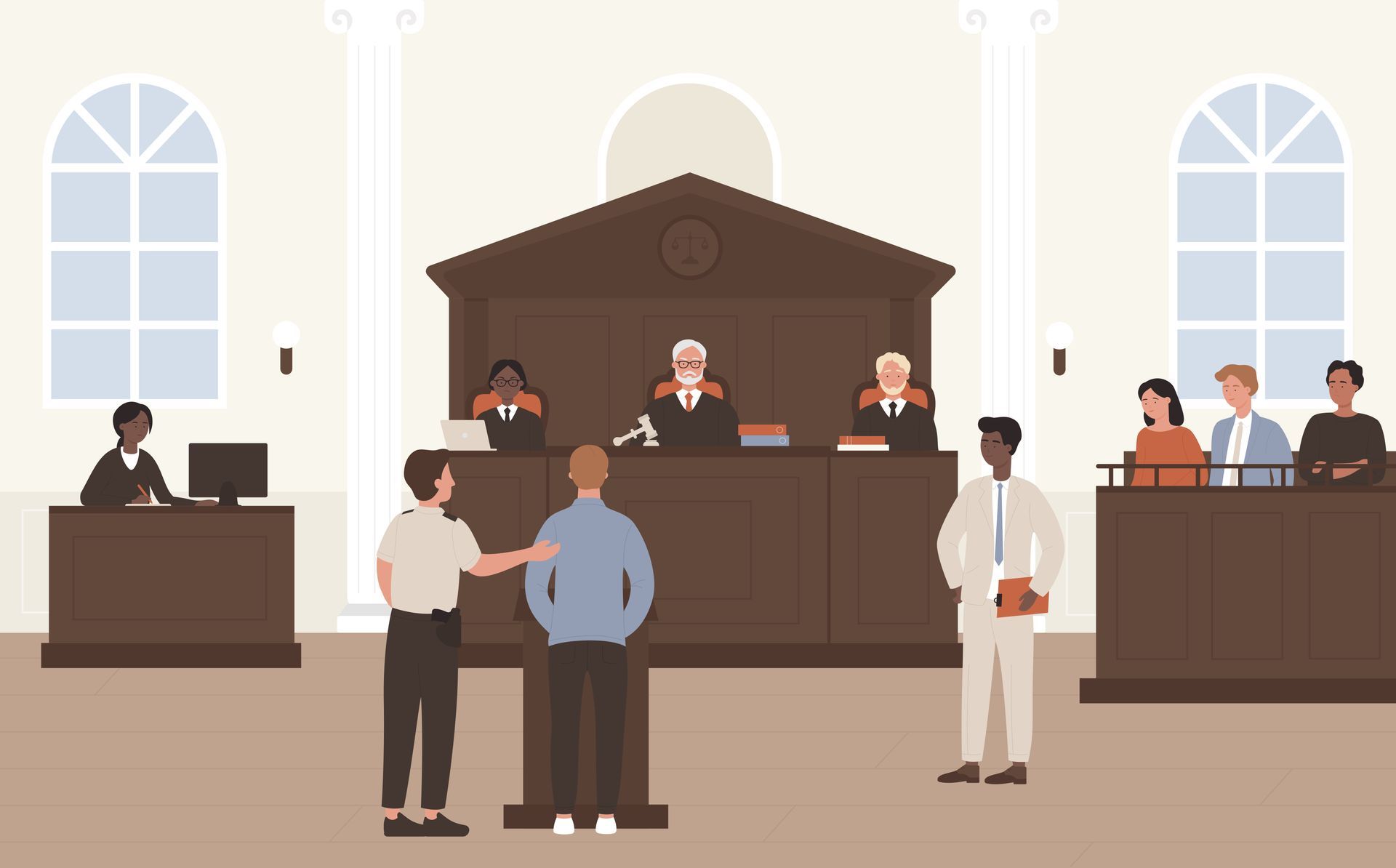Practice Areas
Blog

In the realm of law and order, criminal defense attorneys stand as guardians of justice, tasked with defending the rights of individuals accused of crimes. Their significance cannot be overstated, as they play a pivotal role in ensuring fair trials, protecting fundamental liberties, and upholding the principles of a just society. Here are several reasons why criminal defense attorneys are indispensable: Presumption of Innocence : At the heart of any democratic legal system lies the presumption of innocence until proven guilty. Criminal defense attorneys serve as staunch advocates for this principle, ensuring that every accused individual receives a fair trial and is not unjustly punished before their guilt is established beyond a reasonable doubt. Protection of Rights : The Constitution guarantees certain rights to every individual, including the right to due process, the right to a fair trial, and the right to legal representation. Criminal defense attorneys act as a safeguard against overreach by law enforcement and prosecutors, ensuring that these rights are upheld and respected at every stage of the legal proceedings. Balancing Power Dynamics : In the adversarial nature of the legal system, prosecutors wield considerable power in pursuing criminal charges. Defense attorneys serve to balance this dynamic by providing a vigorous defense on behalf of their clients, challenging the evidence presented by the prosecution, and holding the state accountable for meeting its burden of proof. Ensuring Effective Counsel : Effective legal representation is essential for a fair trial and a just outcome. Criminal defense attorneys bring their expertise, experience, and dedication to bear in crafting a defense strategy tailored to the unique circumstances of each case. From conducting thorough investigations to presenting compelling arguments in court, they strive to secure the best possible outcome for their clients. Protecting Vulnerable Populations : Criminal defense attorneys often represent individuals who are marginalized or disadvantaged, including those who cannot afford private legal counsel. In doing so, they ensure that all members of society, regardless of their background or circumstances, have access to competent legal representation and are treated fairly under the law. Preventing Miscarriages of Justice : The stakes in criminal cases are high, with the potential for severe consequences, including imprisonment, fines, and loss of liberty. Criminal defense attorneys play a critical role in preventing miscarriages of justice by scrutinizing the evidence, challenging flawed legal arguments, and advocating for the rights of the accused. Advancing Legal Principles : Through their advocacy and litigation, criminal defense attorneys contribute to the development of legal principles and precedents that shape the course of justice. Their efforts help to refine and strengthen the legal system, ensuring that it remains responsive to evolving societal norms and values. In conclusion, criminal defense attorneys are indispensable pillars of the legal profession, dedicated to upholding the principles of justice, protecting individual rights, and ensuring a fair and equitable legal process for all. Their tireless advocacy, unwavering commitment, and steadfast defense of the accused are essential for the maintenance of a free and just society.

Preparing for court is an essential part of an attorney's role in representing their clients effectively. Whether you are a seasoned attorney or a newly admitted lawyer, thorough preparation can make a significant difference in the outcome of your cases. In this blog, we will discuss some important tips that attorneys can take to prepare for court. 1. Understand the Law and Facts : The foundation of any successful court representation is a comprehensive understanding of the law and the facts of the case. Familiarize yourself with the relevant statutes, regulations, and case law that apply to your client's situation. Analyze the facts of the case, review all documents and evidence, and identify the legal issues that need to be addressed. This deep understanding will enable you to develop a strong legal strategy. 2. Research Precedents : Conduct thorough legal research to identify any relevant precedents that may impact your case. Look for similar cases with favorable outcomes that can be used to support your arguments. Understanding how previous cases have been decided can help you anticipate potential challenges and develop persuasive legal arguments. 3. Communicate with Your Client : Open and effective communication with your client is crucial in preparing for court. Meet with your client to discuss their goals, concerns, and expectations. Gather all necessary information from your client and address any questions or doubts they may have. Keep your client informed about the progress of the case and provide updates on any significant developments. 4. Develop a Clear Strategy : Once you have a solid understanding of the law, facts, and client objectives, develop a clear strategy for the case. Determine the key legal arguments, potential defenses, and the most effective approach to presenting your case. Consider the strengths and weaknesses of your client's position and develop strategies to address any weaknesses. A well-defined strategy will guide your actions throughout the court proceedings. 5. Prepare Witnesses : If you have witnesses who will be testifying on behalf of your client, it is crucial to prepare them thoroughly. Interview each witness to gather their testimony, address any potential concerns or inconsistencies, and ensure that they understand their role in the case. Conduct mock examinations to help witnesses become comfortable with the courtroom setting and prepare them for potential cross-examination. Don’t wait until the last minute. 6. Gather and Organize Evidence : Strong evidence is the backbone of any successful court presentation. Collect all relevant documents, photographs, expert reports, or other tangible evidence that supports your client's position. Organize the evidence in a logical and easily accessible manner. Ensure that the evidence is admissible and properly authenticated and be prepared to present it effectively in court. 7. Anticipate Counterarguments : Put yourself in the shoes of the opposing counsel and anticipate the arguments or objections they may raise. Prepare persuasive responses to counter these arguments and address any potential challenges. By anticipating counterarguments, you can develop strong rebuttals and maintain control of the narrative in court. 8. Develop a Compelling Opening and Closing Statement : The opening and closing statements are critical moments in a court proceeding. Craft a compelling and persuasive opening statement that outlines your client's position and sets the stage for the rest of the case. Similarly, develop a powerful closing statement that summarizes the key points, emphasizes the strengths of your client's case, and reinforces your legal arguments. Tell a compelling story that connects emotionally and logically with the jury. Telling a story that connects is key. 9. Prepare Courtroom Technology : If you plan to use technology during the court proceedings, ensure that you are familiar with the equipment and software. Practice using presentation tools, projectors, or any other technology that will aid in presenting your case. Verify the compatibility of your files and be prepared for any technical issues that may arise. 10. Practice, Practice, Practice : Finally, practice your courtroom presentation extensively. Rehearse your opening and closing statements, direct examinations, and cross-examinations. Pay attention to your delivery, body language, and tone of voice (consider video recording your presentation). Practice responding to potential objections and think on your feet. The more you practice, the more confident and prepared you will be in the courtroom. Preparing for court is a complex and time-consuming process, but it is essential for attorneys to effectively represent their clients. By understanding the law, communicating with your client, conducting thorough research, and developing a clear strategy, you can increase your chances of achieving a favorable outcome in court. Remember to stay organized, anticipate challenges, and present your case with confidence and professionalism.

Being accused of a crime can be an incredibly stressful and overwhelming experience. However, it is important to try to stay calm and focused during this challenging time. Here are some tips that people can use to help maintain their composure when facing criminal accusations: 1. Seek Legal Counsel : One of the first steps a person should take when accused of a crime is to seek legal counsel from an experienced criminal defense attorney. Having a knowledgeable and supportive attorney by their side can provide a sense of reassurance and guidance throughout the legal process. 2. Educate Yourself : Understanding the legal process and your rights can help alleviate anxiety. Take the time to educate yourself about the criminal justice system, the charges you are facing, and the potential consequences. Consult with your attorney to gain a clear understanding of the situation and ask any questions you may have. 3. Trust Your Attorney : Trust in the expertise and guidance of your attorney. They are there to protect your rights and advocate for you. Establish open and honest communication with your attorney, and rely on their advice and legal strategies. Having confidence in your legal representation can help ease worries and allow you to focus on the case. 4. Practice Self-Care : Taking care of your mental and emotional well-being is essential. Engage in activities that help you relax and reduce stress. This can include exercise, meditation, spending time with loved ones, or pursuing hobbies that bring you joy. Taking care of yourself will help you maintain a clearer and more focused mindset. 5. Surround Yourself with Supportive People : Reach out to friends and family members who can provide emotional support. Having a strong support system can help you navigate the challenges you are facing and provide a sense of comfort during difficult times. Surround yourself with positive influences who can offer encouragement and understanding. 6. Focus on What You Can Control : It is natural to feel overwhelmed by the circumstances, but it is important to focus on what you can control. Direct your energy towards working closely with your attorney, gathering necessary documents or evidence, and actively participating in your defense strategy. By focusing on the aspects you can influence, you can regain a sense of control and reduce feelings of helplessness. 7. Practice Mindfulness and Breathing Techniques : Mindfulness and breathing exercises can help calm the mind and reduce stress. Take a few moments each day to practice deep breathing, meditation, or mindfulness techniques. This can help you stay present, manage anxious thoughts, and promote a sense of calmness. 8. Stay Positive and Optimistic : Maintaining a positive mindset can be challenging when facing criminal accusations, but remaining optimistic about the outcome is crucial. Surround yourself with positive influences and engage in activities that uplift your spirits. Focus on the steps you are taking to address the situation and work towards a resolution. 9. Follow Legal Advice : Lastly, it is important to follow the legal advice provided by your attorney. They have the experience and expertise to guide you through the legal process. By adhering to their advice, you can ensure that you are taking the necessary steps to protect your rights and achieve the best possible outcome. Remember that staying calm during a criminal accusation is easier said than done, but by using these tips and relying on the support of your attorney and loved ones, you can navigate the process with a clearer mindset and a greater sense of control.

The steps that follow an arrest depend on the jurisdiction and the nature of the alleged offense, but generally, they include the following: 1. Initial Appearance Following the booking process, the arrested individual is brought before a judge for an initial appearance. During this hearing, the charges are formally presented, and the individual is informed of their rights. The judge may also decide on bail during this proceeding. 2. Bail Hearing The judge will consider various factors, such as the severity of the charges, the individual's criminal history, ties to the community, and the risk of flight, to determine whether to grant bail. If bail is set, the individual may pay a specified amount to secure their release from custody while awaiting trial. 3. Legal Representation It is crucial for the arrested person to secure legal representation. If they cannot afford an attorney, the court may appoint a public defender to represent them. Legal counsel is essential for navigating the complexities of the legal system, understanding the charges, and building a defense. 4. Arraignment The next step is the arraignment, where the defendant is formally presented with the charges, informed of their rights, and asked to enter a plea (guilty, not guilty, or no contest). This is a critical stage where legal arguments may be presented, and negotiations for plea deals may begin. 5. Pretrial Proceedings Before the trial, there may be several pretrial hearings. These hearings can address various matters, such as motions to suppress evidence, challenges to the admissibility of certain statements, or requests for changes in bail conditions. 6. Discovery Both the prosecution and defense engage in the discovery process, exchanging information and evidence related to the case. This process allows each side to understand the strengths and weaknesses of the opposing case. 7. Plea Bargaining In many cases, the prosecution and defense engage in plea bargaining, where the defendant agrees to plead guilty based on an agreement on the charge(s), the punishment, or a combination of the two. Plea bargains can expedite the legal process and provide a degree of certainty regarding the outcome. 8. Trial If no plea agreement is reached, the case proceeds to trial. The prosecution and defense present their cases, and the judge or jury determines the verdict of guilt or innocence. A trial involves the presentation of evidence, examination of witnesses, and legal arguments. 9. Sentencing If the defendant is found guilty, a separate sentencing hearing is held. The judge or jury determines the appropriate punishment, which may include fines, probation, community service, or incarceration. 10. Post-Conviction If the individual is convicted, they may have the right to appeal the decision. Post-conviction proceedings may involve efforts to overturn the conviction or reduce the sentence. Conclusion It's important to note that the legal process can be complex, and the specific steps may vary. Additionally, individuals have constitutional rights at every stage, including the right to legal representation, the right to a fair trial, and the right to appeal a conviction.

Greetings from the Law Office of Kevin B. Ross! In this blog, we're empowering you with the knowledge you need to make informed decisions when seeking legal representation for criminal defense matters. Finding the right attorney is crucial, and asking the right questions can help you assess their expertise and ensure they're the right fit for your case. Join us as we explore the key questions to ask when consulting a criminal defense attorney. 1. What is Your Area of Expertise? Understanding an attorney's specialization is fundamental. Inquire about their experience in handling cases similar to yours and their track record of success in criminal defense. 2. How Will You Approach My Case? Ask about their strategy for handling your specific case. A reputable attorney will outline a clear plan, explaining the steps they'll take to build a robust defense on your behalf. 3. What Possible Outcomes Can I Expect? While no attorney can guarantee specific outcomes, they should be able to discuss potential scenarios based on their assessment of your case's strengths and weaknesses. 4. How Often Will We Communicate? Communication is essential throughout the legal process. Ask how often you can expect updates on your case and the preferred method of communication (email, phone calls, in-person meetings). 5. What Are Your Fees and Billing Structure? Understanding the financial aspect is crucial. Inquire about their fee structure, whether it's hourly, or flat fee. Get a clear breakdown of costs and potential additional expenses. 6. Are There Alternatives to Trial? An experienced attorney will discuss potential alternatives to trial, such as plea bargains or diversion programs. Ask about their approach to negotiation and resolution. 7. How Familiar Are You with Local Courts and Legal Personnel? Familiarity with local courts, judges, and prosecutors can be advantageous. Ask about their experience working within the jurisdiction where your case is being heard. 8. What Information Do You Need from Me? Understanding what information is essential for your case helps ensure a comprehensive defense. Ask about the documents, evidence, and details you should provide. 9. How Can I Best Assist in My Own Defense? A skilled attorney will guide you on how to be an active participant in your own defense. Inquire about steps you can take to support their efforts. Your Trusted Legal Advisors At the Law Office of Kevin B. Ross, we believe that informed clients make the best decisions. If you're seeking a criminal defense attorney, don't hesitate to ask these questions during your consultation. Our dedicated team is here to provide comprehensive answers and guide you through the legal process. Remember, your choice of attorney can significantly impact the outcome of your case. Empower yourself with knowledge and take the necessary steps to secure the representation you deserve. Stay empowered and informed!

Being arrested is a life-altering experience that can leave individuals feeling overwhelmed and uncertain about their future. It marks the beginning of a legal process that can be complex and emotionally challenging. Understanding what to expect after being arrested is crucial for individuals and their families as they navigate the legal system.

When most people hear the term “drug trafficking,” they imagine large vehicles transporting huge amounts of drugs across state (or even national) borders. In fact, while trafficking certainly does encompass the transportation of drugs, it is also used to describe a wide array of other actions involving controlled or counterfeit substances. Definition of Federal Drug Trafficking 21 USC § 841 makes it illegal to “manufacture, distribute, or dispense” a controlled substance; the same section also outlaws possession with intent to manufacture, distribute, or dispense controlled substances. The key difference between possession and trafficking is that trafficking involves an amount of controlled substances that is more than what would normally be reserved for personal use. There are minimum amounts for almost every type of controlled substance that trigger trafficking charges. For instance, possession of 100 kilograms or more of marijuana will likely trigger trafficking charges. Other drugs, like heroin, cocaine, methamphetamine, LSD, and fentanyl, have substantially lower weight thresholds. Minimum Sentences Just as controlled substances have weight thresholds that trigger trafficking charges, different amounts can earn you a longer prison sentence. Importantly, sometimes mandatory minimum sentences apply to federal drug charges. For example, someone caught with 101 kilograms of marijuana and convicted of federal trafficking charges will be subject to a five-year mandatory minimum prison sentence (with a 40-year maximum sentence). However, if that person is convicted of having more than 1,000 kilograms of marijuana, he could be looking at a mandatory minimum sentence of 10 years . Penalties for drug trafficking are more severe for repeat offenders. A second conviction for federal drug trafficking can result in a 20-year sentence, and a third conviction could result in life. Additionally, there are all sorts of enhancing factors that may come into play. Using a firearm or other weapon while committing a federal drug crime is sure to increase potential penalties. Using minors to aid in drug trafficking operations is another enhancing factor, as is distributing near a school. How Can an Attorney Help? First, a skilled criminal defense attorney will be able to poke holes in the prosecution’s case and cast doubt on the charges. There are numerous tactics and strategies an attorney will know to deploy in certain situations. Second, attorneys are able to help their clients receive mitigated sentences if they should be found guilty. In many ways, navigating the federal sentencing guidelines is actually more complex than defending against charges. The Law Office of Kevin B. Ross is well-positioned to help you take on serious drug charges. Our team handles a wide array of federal and state criminal charges and pledges to be there with you every step of the way. Call us today to discuss your legal needs over a free consultation.

Referring patients to a specialist—podiatrist, neurologist, or ENT, for example—is a common outcome for many patients seen by general practitioners and internists. Webs of connected medical professionals are more complex than ever. While many can interpret that as one of many signs of an advancing health care system, government programs are keen to make sure medical referrals, services, and products are made in good faith. In 1986, Congress passed the federal Anti-Kickback Statute (AKS). This law prohibits “remuneration” for patient referrals or arrangements for furnishing of products or services that are paid by a federal health care program. AKS violations typically involve Medicare, though they are occasionally associated with Medicaid or TRICARE. Common Anti-Kickback Statute Violations An example of one of the most blatant AKS violations would be a doctor who receives money for referring his patients to a particular gastroenterologist. This distilled version of an AKS violation usually manifests itself through more complex schemes and illegal arrangements. Such a scheme might involve: A specialist who rents out a space in her medical facility to a physician at a discounted rate (below fair market value). In turn, the physician refers patients to the specialist; A doctor who is paid “consultant” or “advisor” fees by specialists who receive referrals from the doctor; a sign of illegal kickbacks in this situation would be the absence of actual services rendered by the doctor purported to be a consultant; Unfair investment opportunities in medical facilities for doctors who pledge to refer patients to the completed facilities; Payments to doctors who send specimens to certain laboratories or testing facilities; or Pharmaceutical companies who simply pay doctors to prescribe their medications. Why the Government Cares About Illegal Kickbacks? The Department of Justice and Health and Human Services aggressively prosecute AKS violations for more reasons than wasted tax money. At a basic level, the federal government asserts that patients deserve to be treated by health care professionals who have the best interests of the patient in mind. Receiving or providing kickbacks provides obvious incentives that may result in unnecessary tests or procedures for patients. Unfair competition among medical providers is also a concern of federal agents. Penalties for Anti-Kickback Statute Violations A conviction for a federal AKS violation carries a maximum prison sentence of five years and a fine of up to $25,000. Those convicted are usually subject to a period of disbarment from participating in public health care programs. Additionally, civil penalties may be levied against violators. The amount per penalty can reach up to $50,000 plus three times the monetary value of the remuneration involved in the violation. Conclusion Even during the COVID-19 pandemic, federal prosecutors brought a substantial number of AKS charges against alleged wrongdoers. If you are being investigated for AKS violations or have already been charged, the next thing to do is call an experienced criminal defense attorney. The Law Office of Kevin B. Ross has years of experience defending clients against alleged federal Anti-Kickback Statute violations. Contact us today to set up a free consultation.



